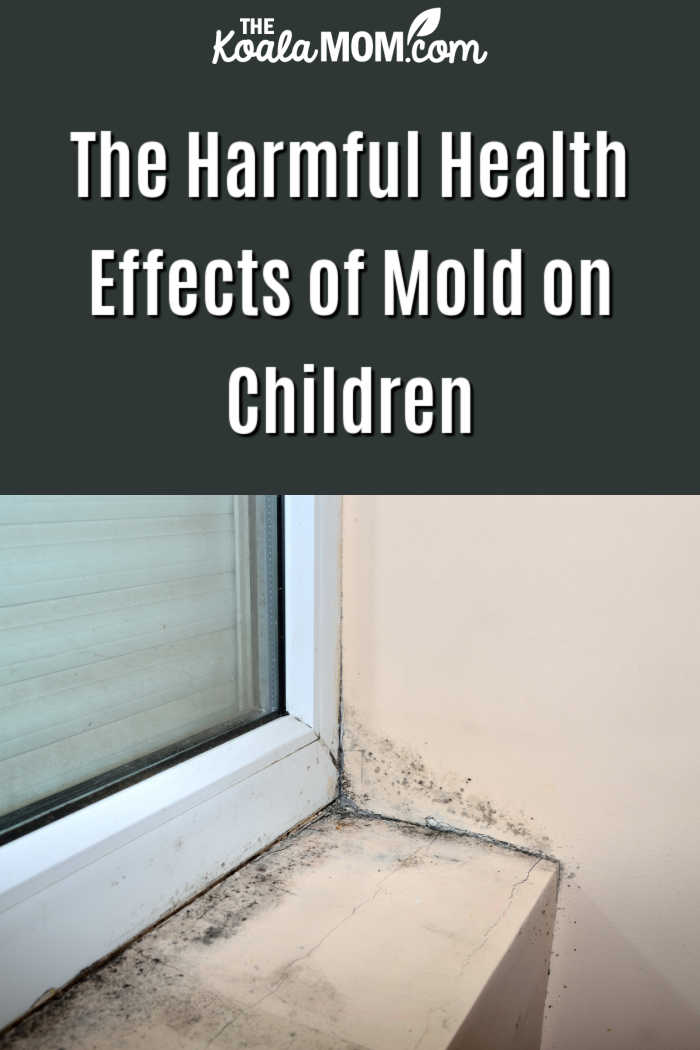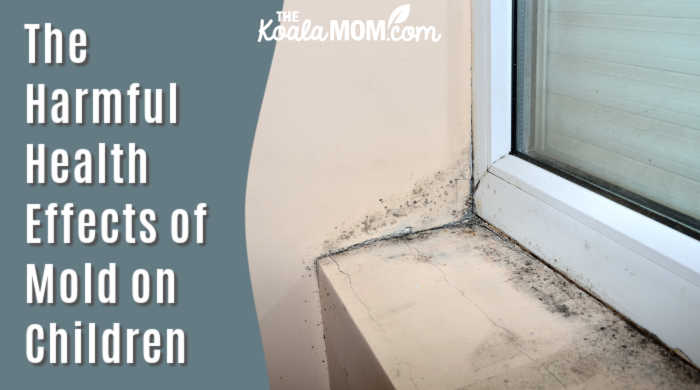Mold can be a serious problem, especially for children. Older homes, homes in damp climates, or homes with a water leak or other ventilation problems could contain mold. Unfortunately, although often unseen and hidden, mold can cause a variety of health problems affecting the quality of life of everyone who gets in contact with it. This article will discuss the harmful effects of mold on children.

Irritations
Mold can cause irritations in various parts of the body. Skin irritations, for example, can take the form of a rash. The irritant nature of mold can also lead to nose and throat irritation.
Children are especially susceptible to these effects as their bodies are still developing. If a child is exposed to mold for an extended period of time, they may develop various irritations that are unpleasant and extremely unhealthy for children. Some common irritations caused by mold are itchy, red eyes, a runny nose, sneezing, coughing, a sore throat, bronchitis as well as Asthma attacks.
Mold should be removed as soon as it is detected in order to prevent any further irritations from taking place. For example, if you live around Queensland you could call Cleopatra Cleaning & Restoration in Gold Coast to help remove mold in your home.
Respiratory Issues
Mold can also cause serious respiratory issues in children, particularly those who already suffer from asthma or other respiratory conditions. Inhaling mold spores can trigger an asthma attack, and the respiratory irritation caused by mold can worsen other respiratory conditions. If your child is having difficulty breathing, coughing, or wheezing, it could be a sign that mold is affecting their respiratory system.
If you suspect your child may be suffering from the effects of mold exposure, it is important to seek medical attention as soon as possible. Mold exposure can cause serious health problems, and early diagnosis and treatment are essential for ensuring the best possible outcome.
For example, if a child with asthma is exposed to mold, they may be more likely to experience a severe asthma attack that requires hospitalization.
Neurological Problems
It has also been documented that exposure to mold causes some neurological problems. These could be the following:
- mood swings
- memory problems
- learning difficulties
- lack of concentration
- dizziness
- headaches
- hallucinations (in extreme cases)
These neurological problems are harmful to children because they could hamper their learning abilities and social skills. It is important to be aware of these neurological problems that mold exposure could cause so that you can take the necessary precautions to avoid them. For example, home mold tests are available to find out if there is mold in your house that could be causing your child’s health problems.
Infections
Infections caused by mold are some of the most harmful effects of mold on children. Mold can cause infections in the lungs, sinuses, and skin. These infections can be very serious and even life-threatening. Children with weakened immune systems are especially susceptible to mold infections. If your child has a mold infection, it is important to get them to a doctor immediately.
Treatment for mold infections usually involves antibiotics. In some cases, surgery may also be necessary to remove the infected tissue. If your child has a severe mold infection, they may need to be hospitalized.
Hair Loss
In some cases, hair loss can be one of the harmful health effects of mold on children. While hair loss isn’t a common symptom, it can happen if a child’s scalp becomes infected with mold. If your child begins to lose hair, see a doctor to determine if mold is the cause.
If it is determined that hair loss is due to mold, the good news is that it is usually a temporary condition. Once the mold is removed from your child’s environment, their hair should grow back. However, if hair loss persists, it could be a sign of a more serious condition and you should consult with a doctor.
What Should You Do?
If you suspect that there is mold in your home or that your child has been exposed to mold elsewhere, speak to your doctor about whether mold could be a possible cause of their health problems. There are tests available to see if there is mold in your child’s body and treatment can then be administered. There are also tests available to see if there is mold in your home.
If mold is discovered in your home, then you’ll want to consider hiring professional mold removers. Other measures, such as replacing windows, renovating, or even moving may also be necessary, depending on the severity of the mold problem. If your home is suspectable to mold (for example, around windows in the damper winter months), ensure you are cleaning frequently and thoroughly.

Mold is a horrible thing to have around your living quarters, especially if you have kids. It can cause irritations as well as respiratory and neurological problems in kids. Mold can also create infections and make children nauseous. Finally, it can also cause hair loss in some cases!
Have you dealt with mold in your home or seen its harmful health effects on your children?
Photo credit: Depositphotos.

No Responses Yet